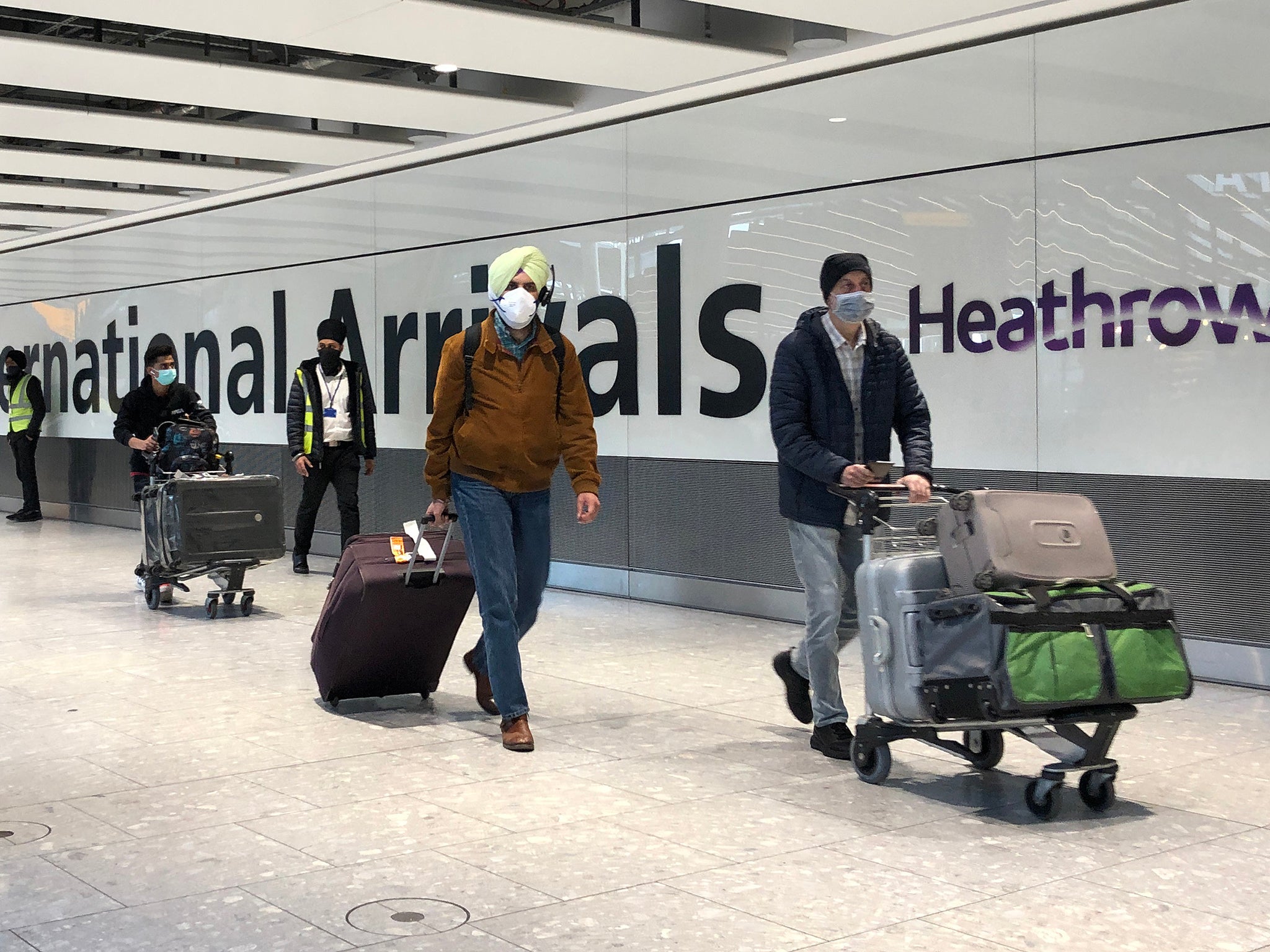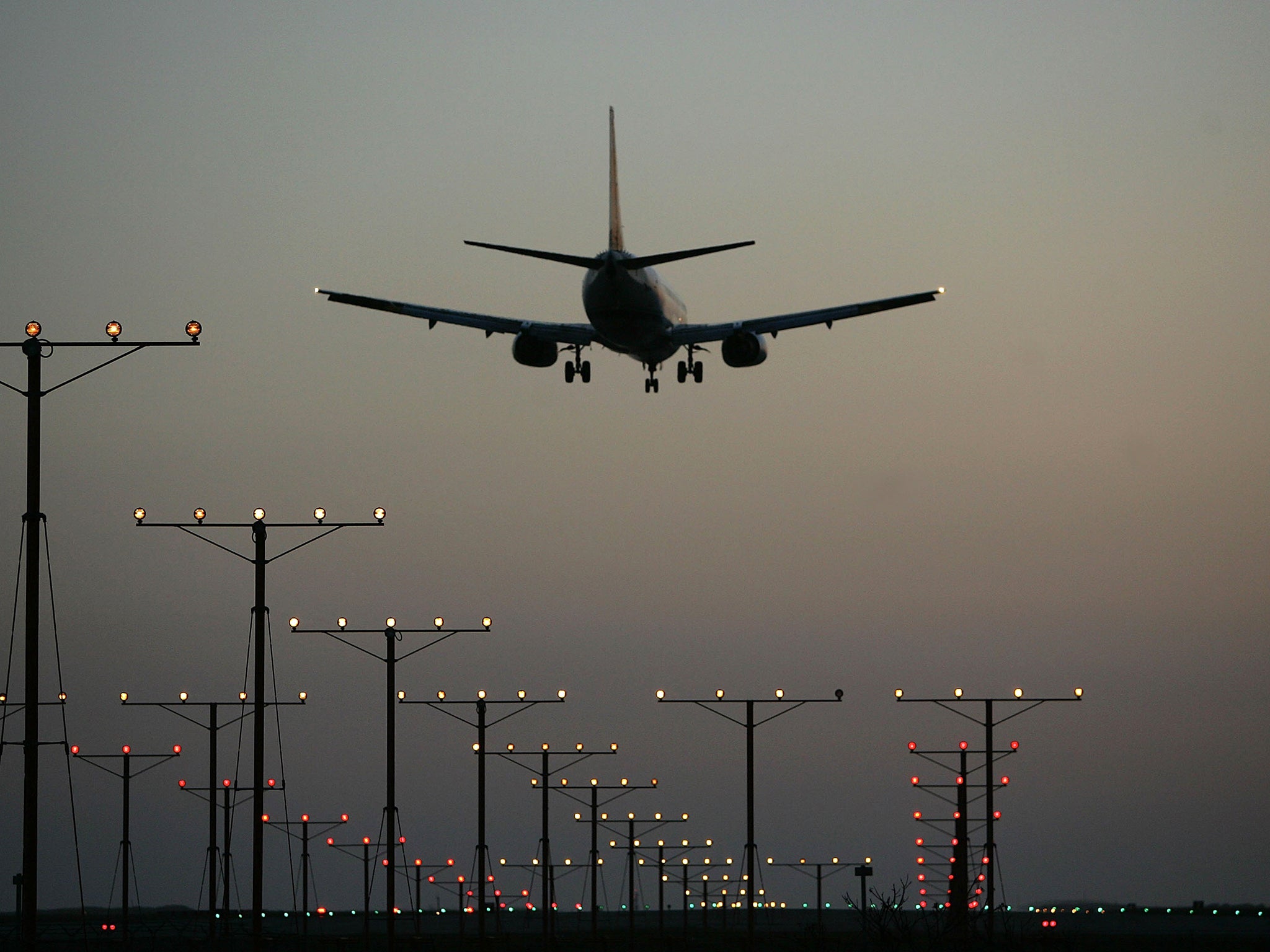Can I use an NHS test on holiday to get into the UK?
Simon Calder answers your questions on Covid tests, travelling to Israel and whether there’s a solution to railway chaos


Q I’ve booked to travel to the Algarve on 2 June. Can I take an NHS lateral flow test with me to use as the entry requirements on my return to the UK, or must I go to a Portuguese clinic? It seems ridiculous if I need to go to a clinic when I am using the lateral flow test in the UK to test twice a week.
Julie W
A You are one of the many tens of thousands of pioneering holidaymakers who will be travelling to Portugal in the first few weeks of the new “green list”, which takes effect next Monday 17 May. Portugal is the only mainstream summer-sun destination on the UK government’s list of nations from which no quarantine is required; while Australia, New Zealand and Singapore are included, they have no plans to let us visit. Other locations, such as the Faroes, are accessible only via amber countries, which would trigger 10 days in self-isolation when you return home.
But the UK still insists on onerous testing, even for arrivals from low-risk destinations. “Before you travel to England you must take a Covid-19 test and book and pay for a day two Covid-19 test,” the government says. The pre-departure test must be taken in the three days before your plane departs for the UK. If that is on a Saturday, the test must be no earlier than Wednesday.
While some ministers have suggested that free NHS lateral flow tests might be used as pre-departure tests, at the moment that is not the case: if you turn up at check-in with simply your lateral flow test, you will be turned away. The pre-departure test can be lateral flow, which will help keep the cost down, but it must be officially certified by a medical provider, in English, Spanish or French; in Portugal, this last stipulation adds to the cost and complexity.
Back in the UK, you will also need a PCR test on your day of arrival or within the two following days. Again, this must be a test that you find and pay for privately – NHS testing cannot be used.

Q Is there any indication the government will follow other countries and drop the testing requirement for vaccinated passengers? Will there be a review of this? I don’t think there’s been enough discussion about the implications of testing positive abroad, especially for a family. I think a test upon landing or within 24 hours of returning to the UK would be better.
Sean R
Q A few points here. First, the government has shown no interest whatsoever in the vaccination status of British people returning to the UK. Just because you have had UK vaccines does not affect your testing obligation one jot. As mentioned yesterday, even from low-risk destinations you are obliged to undergo a pre-departure test before travelling to the UK, and take a PCR test on arrival – both tests at your expense.
My strong prediction is that these requirements – particularly the post-arrival test – will be eased significantly at the first review of the traffic light categories, scheduled for early in June. (Personally I think a test before departure to the UK makes more sense than a test after arrival.) One possible change is that people who have completed a course of vaccinations may escape some or all of the testing requirement. That would be controversial, but it would also help to limit the immense damage incoming tourism has suffered.
Regarding the implications of testing positive abroad: that is always a risk, with significant implications. Someone who tests positive for Covid will not be able to travel back as planned. That could trigger lots of expense for families – or lead to a stressful situation where a family has to split up and leave some members behind.
I have said before that this is a summer for the bold and the desperate. Anyone who is planning to travel abroad these difficult days must accept there are some unavoidable risks.

Q You have written about the problems affecting trains on GWR and LNER and all the cancellations that have resulted. As I understand it, there are plenty of trains standing idle because of the coronavirus pandemic, and presumably plenty of drivers too. So why can’t they just use some of these mothballed trains while the problems are fixed?
Trevor B
A You are quite correct that there are plenty of trains not being used in various parts of the UK because demand for rail travel is still way below pre-pandemic levels. But unfortunately there are many obstacles to replacing the “Class 800” trains that are suffering from hairline cracks and undergoing safety checks.
GWR, serving south Wales, the Cotswolds and the west of England from London Paddington, is by far the worst affected – and has just had a fourth day in a row of urging passengers not to travel.
At the weekend many long-distance services on LNER from London King’s Cross to Yorkshire, northeast England and Scotland were cancelled. The train operator is now running 75 per cent of its normal services, though nothing beyond Edinburgh. LNER has brought back into service a “Class 91” train built three decades ago, with others planned for reinstatement. But unusually, many drivers for the train operator are trained on the older rolling stock.
As Mark Smith, the former British Rail manager who now runs the Seat61.com international rail site, succinctly puts it: “I can just get in a Mercedes and drive it on my current licence, as easily as I drive my Land Rover. But on the railways, driver and other staff training is a major issue.
“A GWR train driver trained on High Speed Trains and then Class 800 can’t just get in a class 91 and drive that. Months of training are required.”
In addition, you would need the right sort of train – and to be sure it was ready to go. Some of them will be stored in non-operational condition. But if the Class 800 crisis drags on, older trains may be brought back. GWR says: “Disruption is likely to continue for some time.”

Q The cessation of air travel over the last year offers a chance for us to do something positive about climate change.
How do you feel about rationing air travel to one flight per year, as a step in the right direction?
Forbrydelsen
A At the 2019 election, both the Green Party and the Liberal Democrats had plans to impose much higher taxes on anyone who makes more than one or two round trips every year. They both aimed to “reduce the impact of the 15 per cent of people who take 70 per cent of flights”. You are suggesting an absolute limit.
Unfortunately, I cannot see either their or your idea being a workable proposition.
Among the many problems it raises: why would you penalise someone who wants to fly a couple of round-trips from the UK to Spain on an efficient airline such as easyJet or Ryanair, but not touch a first-class traveller to New Zealand and back?
What do you do to stop, for example, people taking Eurostar to Paris or Amsterdam for an onward flight, to dodge the penalties? This would seem to encourage more wasteful journeys.
More widely, if you are to restrict the environmental impact on an individual level, you need to express limits in terms of the harm caused, surely? For example, I have never owned a car and I walk, cycle or hitchhike whenever possible. Therefore my terrestrial transport impact is relatively low, but I fly (or at least used to do) a fair amount. How do you assess my right to fly?
Finally, in the absence of complete international agreement, how do you impose this rule on foreign citizens and check that they are using their one-flight allowance on a trip to the UK and not going anywhere else?
There are many good ways forwards to encourage less damaging transportation, mainly to do with nuanced and persuasive taxation, and I hope those discussions will thrive. But I cannot see that a blunt ban on more than one return flight would be effective.
Email your questions to s@hols.tv or tweet @simoncalder


Join our commenting forum
Join thought-provoking conversations, follow other Independent readers and see their replies
Comments